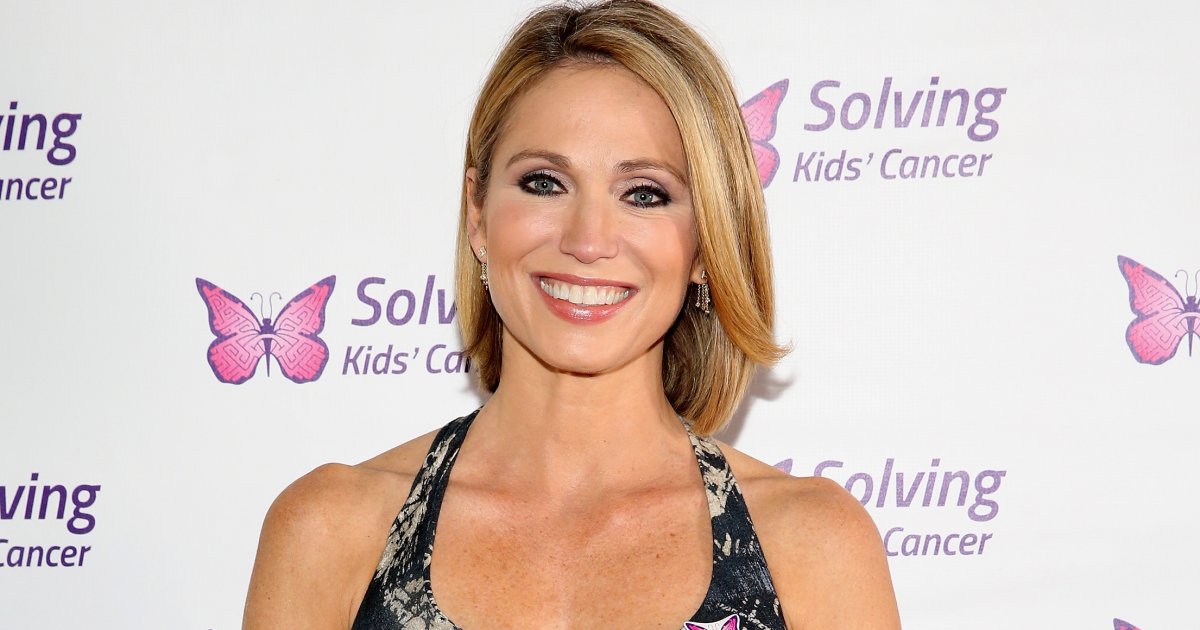Robach Shares More of Her Story
- Good Morning America’s Amy Robach has been in remission from breast cancer for seven years after a surprise diagnosis in 2013.
- She recently shared more details about what got her through her cancer battle and also talked about her upcoming children’s book with her husband.
- Robach had no history of cancer in her family and was only 40 years old when she was diagnosed with stage 2 invasive breast cancer. It’s important to remember that mammograms can be life-saving, and you should talk to your doctor about the right time to begin your annual screenings.
In a recent episode of Ashley Bellman’s digital series The Middle, Robach says it was one of her five children — two daughters and three step-sons who provided inspiration for the book titles.
Read MoreView this post on Instagram
The poem, called Better, was exactly what Robach needed at the time. Its mature message helped her both in that moment and going forward.
“I was going through chemo and really, really at a low point and she wrote me a poem about how ‘it has to get worse before it gets better / and trust me it will get better’ and so that poem is at the beginning of my book,” Robach said. “And that’s why I chose the title Better because, the truth is, going through something so difficult that lives with you for the rest of your life that threat of recurrence, really feeling like you’re vulnerable, recognizing that you’re vulnerable, recognizing that tomorrow isn’t guaranteed that’s a game-changer in how you live every part of your life, and so it’s absolutely created a completely different arc of my life than it would have been had I not gone through that.”
Now, six years after she wrote the first book, her new book will be released in September. Better Together! is authored by both Robach and her husband, actor Andrew Shue, and serves as a metaphor for how she and her three daughters “blended” with Shue and his three sons to become one, big happy family. The children’s book uses backyard animals to do so a trick Robach and Shue came up 12 years ago when their kids were between the ages of 3 and 13. After their separate divorces, they were determined to show their kids that “you can make a family by living together and loving each other.”
“This was a much easier story to tell,” Robach said. “Instead of talking about the toughest time in my life we got to talk about the thing we’re probably most proud of as humans.”
Robach’s Cancer Diagnosis
Robach was shocked when she was diagnosed with stage 2 invasive breast cancer in 2013 there was no history of cancer in her family and she was only forty years old. But the on-air mammogram for a Good Morning America awareness campaign revealed malignant tumors in her breast, so she immediately started treatment with a bilateral mastectomy and six months of chemotherapy.
'Good Morning America' Anchor Amy Robach, 48, On How Handling COVID-19 Is Like Cancer
With no real reason to think she had breast cancer, Robach’s story provides a great lesson in the importance of annual mammograms. Experts say women between the ages of 45 and 54 should get an annual mammogram, but some doctors say that women between the ages of 40 and 45 should also be having these screenings.
Dr. Connie Lehman, chief of the Breast Imaging Clinic at Massachusetts General Hospital, says if you're older than 55, you can choose to continue your annual mammograms or opt to have one every two years. And if you're post-menopausal, she says you may be able to reduce the frequency of your mammograms to every other year. Regardless, all of these decisions need to be made on a case-by-case basis after consulting your doctor.
When Should I Get a Mammogram?
Leaning on a Support System
The support from her family helped Robach through her cancer diagnosis, and having something like a poem of encouragement from your 10-year-old can make a huge difference when your body is braving a long fight.
But your support system doesn’t have to be your family. In a previous interview with SurvivorNet, Heidi Kugler said telling friends and acquaintances about her experience with the disease during treatment, and beyond, made a huge difference.
Finding Your Support System: Heidi Kugler's Survivor Story
"I got this outpouring of love that was just amazing," the ovarian cancer survivor from Columbus, Ohio, said. "It got me through each and every day."
Learn more about SurvivorNet's rigorous medical review process.


